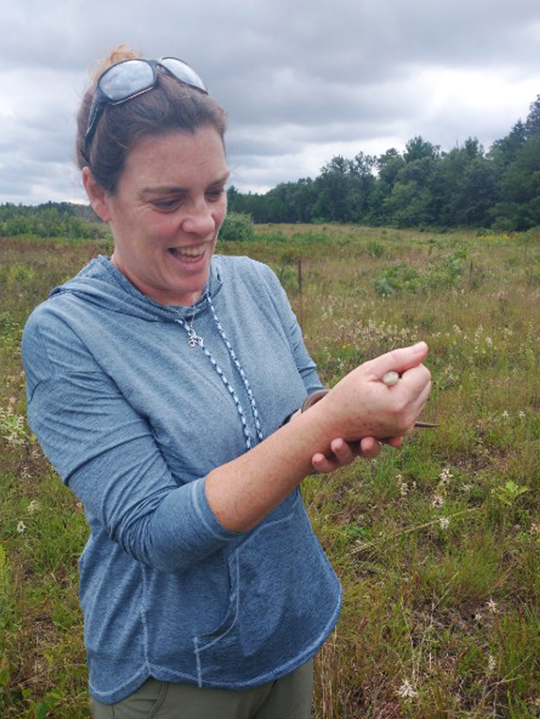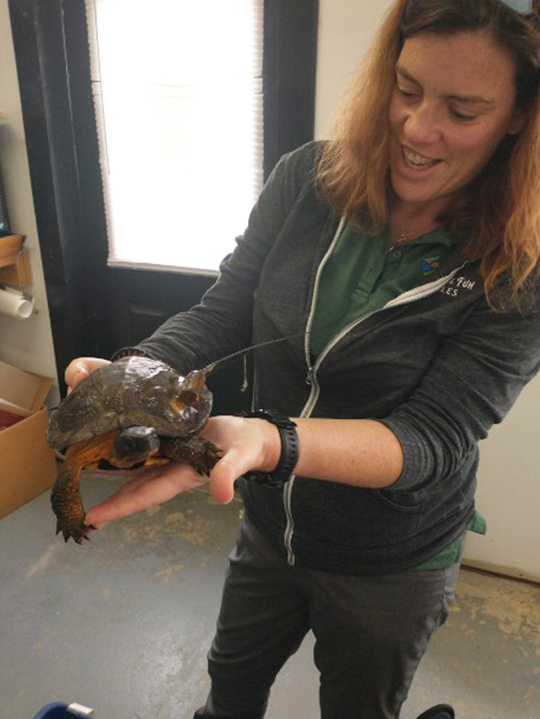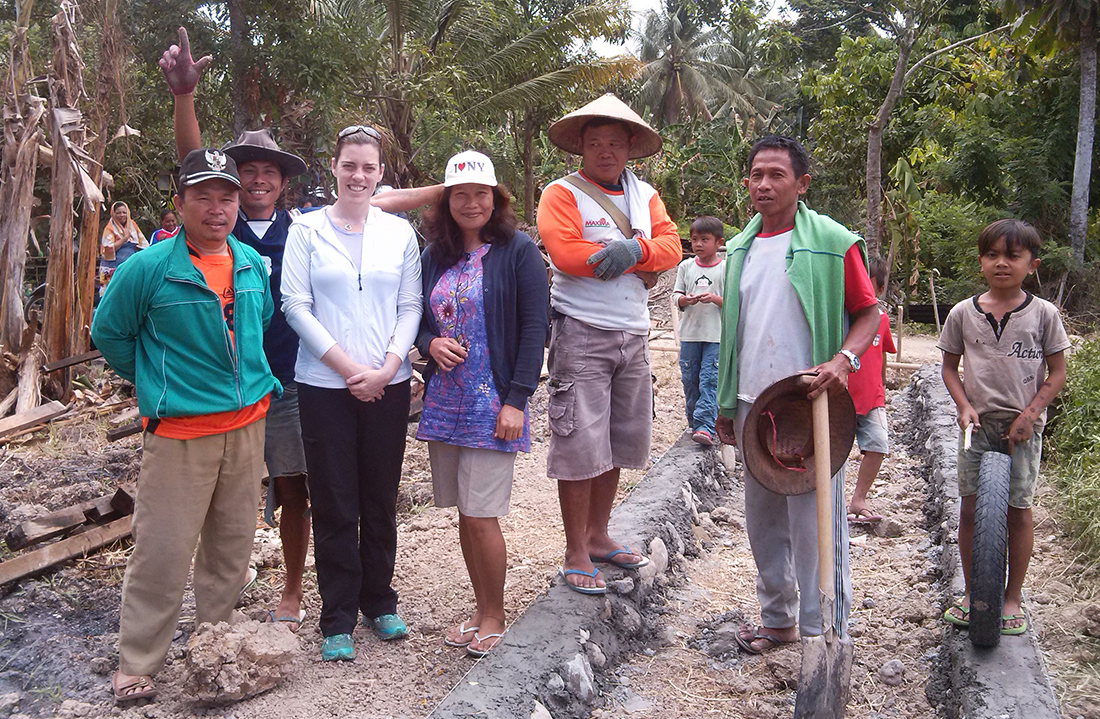BY TIM SCHOMMER
The executive committee that oversees Colorado State University’s Center for Environmental Management of Military Lands has a new member. On Nov. 1, 2023, Dr. Mindy Clarke was promoted to assistant director, joining the three other directors on the committee.

Clarke has been a principal investigator at CEMML since 2016, guiding projects for various military installations in the areas of climate change, cultural resources, and habitat management, among others. She brings 25 years of experience in environmental management to CEMML’s leadership team.
At an early age, Clarke became interested in the environment as she was growing up in rural Vermont. She worked on a farm, rode horses, and skied in the winter. Being outside was a way of life. Her mother was a professor at the University of Vermont, well known for its School of Natural Resources. Clarke did her undergraduate studies at UVM, but finished with a double major in Latin American studies and Spanish and a minor in comparative religion.
Shortly after graduation, though, she found herself teaching environmental education in Mexico and Nicaragua. “It was just inevitable.” said Clarke. “The environment was always a part of my family and upbringing.” She went on to earn her Master of Science in environmental policy and behavior, with a minor in conservation biology and ecosystem management, at the University of Michigan.
Through her studies, she became interested in the social science component — how people interact with natural resources and how natural resources shape people and their behavior. Her master’s work led her to Thailand, where she studied the adoption of innovations by Thai shrimp farmers.
Clarke eventually ended up in Washington, D.C., with the Presidential Management Fellows Program, a highly competitive 2-year placement. Here, she gained expertise in conservation grants management and leadership, and received mentorship from the Secretary of Interior, the Administrator of NASA and the Director of the U.S. Fish and Wildlife Service. She also conducted resource monitoring and evaluation and congressional affairs work for the Fish and Wildlife Service.
Those experiences allowed her to continue to bolster her technical proficiency, but she saw more opportunity in continuing her education. “The folks who were running all the programs and getting to do the fun things and go off to Africa and Asia, they were all Ph.D.s,” said Clarke. She decided it was time to pursue a doctorate degree.
Working at the intersection of science and management
Drawn to Colorado State University for its programs in ecological social science, she entered its doctoral program in ecology in 2010 and was selected as a Fulbright scholar in 2014. Her degree took nearly 10 years to complete as she worked in various roles throughout her studies. She worked as a graduate research assistant, first with the National Park Service managing deer, elk and pronghorn, and then became a human dimensions specialist with the NPS.

As Clarke was wrapping up her doctoral research in Indonesia, on providing healthcare incentives for people to engage in conservation, she had a talk with a fellow Fulbright scholar about the type of role she wanted after graduation. “I really wanted to help bring science into management and help make that translation because there’s a huge gap. Scientists speak science and the managers speak management and it’s challenging to connect the two,” said Clarke.
The next day, she came across a posting for a principal investigator position with CEMML. The job description matched the very concept she had been describing. While she hadn’t worked on military lands before, the role entailed managing environmental projects in compliance with the same laws and regulations she was well versed in from her previous government roles.
She took over several projects from a principal investigator who was retiring, in areas ranging from invasive species control to habitat management, wildland fire management and cultural resource management, spanning military installations from Nevada to Florida. Many of those projects she still oversees to this day.
Clarke credits former CEMML associate director Liz Caldwell with mentoring her — helping her decide when to take on new projects, when to leverage the expertise of others, and how to manage projects to help the entire organization move forward.
Not long into her role as PI, Clarke became project manager on a major climate change initiative for the Air Force that involved conducting climate change assessments for over 100 installations. The climate program continues to expand today, with Clarke’s team now providing their climate expertise across other branches of the military.
Read more about CEMML’s Climate Adaptation and Management Planning Program (CAMPP)
Efficiency & collaboration key to CEMML’s continued success
Now, on the executive committee, Clarke hopes to help CEMML increase its focus on efficiency and collaboration. “It makes me nuts when things are not efficient,” said Clarke. “I will take the time to set up a system that is efficient.” During her 7 years with CEMML, Clarke has observed that a lack of continuity with some processes and procedures, combined with more projects and fewer PIs to oversee them, have made the organization less nimble. “I’m hoping that I can help standardize things for both current and new PIs,” she noted.
Clarke also believes that collaboration is essential for solving the multifaceted natural resource issues that CEMML is tasked with helping the Department of Defense address. “It’s all about being open to collaboration and leveraging the expertise of others,” said Clarke, “Building partnerships at CSU and elsewhere is key to developing innovative and effective approaches to the complex issues our partners face.”
 Mindy Clarke with her community in Indonesia as part of her doctoral research in 2016. Photo courtesy Mindy Clarke.
Mindy Clarke with her community in Indonesia as part of her doctoral research in 2016. Photo courtesy Mindy Clarke.